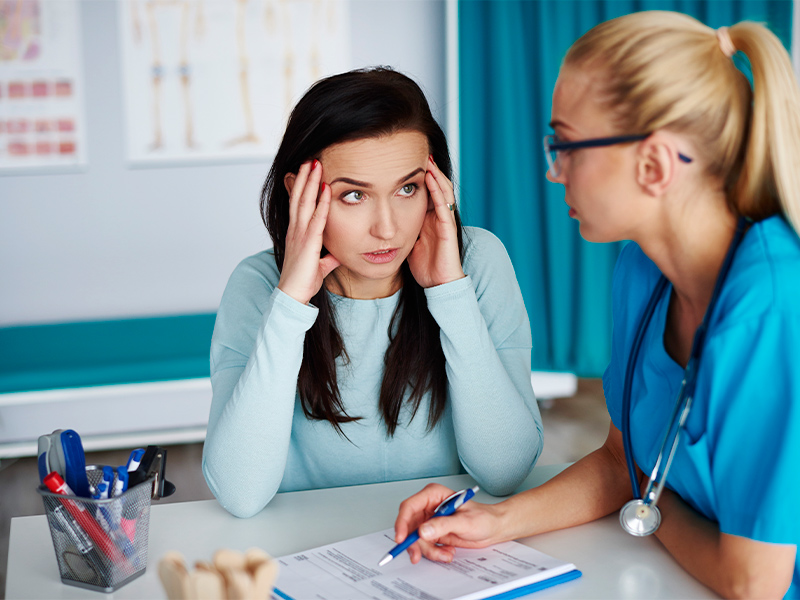Why health anxiety is on the rise and best ways to manage it
If you worry every ache, pain, lump or bump could be a sign of serious illness, you may be one of a growing number of people with health anxiety.
If you feel discomfort in your chest, do you automatically assume it’s a heart attack?
Or do you get a sniffle and you’re immediately convinced it’s Covid-19?
On the other hand, you may have no physical symptoms, but that doesn’t stop you worrying you might get sick, so you Google illnesses you think you might have and spend a lot of time in the GP’s waiting room.
Health anxiety isn’t new and it’s estimated four to five per cent of people experience it.
According to GP Associate Professor Grant Blashki, there’s a sense more people have been experiencing it since the pandemic.
“We don’t know to what extent COVID has made it worse, but the pandemic has made more people hyper-aware of illness, physical symptoms and their own mortality,” Assoc Prof Blashki, a Beyond Blue lead clinical advisor, says.
What is health anxiety?
Clinical psychologist Jonathan Gaston says health anxiety can be somatic symptom disorder, which is having excessive fears about a particular symptom – for example, fear that a freckle is skin cancer.
“Or it can be illness anxiety disorder, when someone worries excessively that they are or may become seriously ill, even when they have no physical symptoms,” Jonathan, of Sydney Anxiety Disorders Practice, says.
“Both types of health anxiety may result in someone constantly seeking reassurance from Dr Google or frequently seeing their GP.”
Going through a significant health event, such an illness or injury when young, can also cause the issue.
- Anxiety busters: 7 expert-backed tips to calm your mind
Signs of health anxiety
At different times, everyone has health concerns, so what are the warning signs of health anxiety?
Red flags to watch for include the following:
- Seeking constant reassurance from GPs
- Obsessing about symptoms
- Having overly frequent check-ups and tests
- Experiencing anxiety that affects day-to-day routines and impacts your job, social life and relationships
How to get help for health anxiety
If you’re worried you have health anxiety, your GP is the best place to start as they understand both physical and psychological conditions.
If you’ve had frequent medical appointments, your GP may already be aware that this is a potential issue and you need support, Assoc Prof Blashki says.
“Book a regular appointment with the same GP to talk through any health issues that are bothering you as the GP who knows you well can make sure that sensible decisions are made about any further tests or treatments,” he says.
Jonathan says cognitive behavioural therapy, which teaches people to challenge negative thinking and catastrophising, is a proven and effective treatment for anxiety.
“There are also online anxiety programs … This is not something people need to live with,” he says.
- Expert support: How to choose the right therapist for you
‘I thought I had a brain tumour’
When Louise*, 27, experienced regular headaches for a few weeks, she became convinced they were sinister.
She visited her GP three times and while he told her they were most likely due to stress, she wasn’t so sure.
Previously, Louise had visited her GP a number of times as she believed a mole had become skin cancer.
Tests showed otherwise but Louise still fretted for weeks after the skin results.
As well as seeing her GP, Louise twice went to the emergency department of her local hospital to seek help for her headaches.
In consultation with her GP, she was referred for an MRI to give her peace of mind.
“I was teary, I couldn’t concentrate or sleep and I had to take time off work – I thought I had a brain tumour,” Louise says.
The MRI was clear and Louise has had no headaches since she got the result.
She is now seeing a psychologist to help overcome her health anxiety.
Written by Sarah Marinos.
*Name changed at interviewee’s request.






